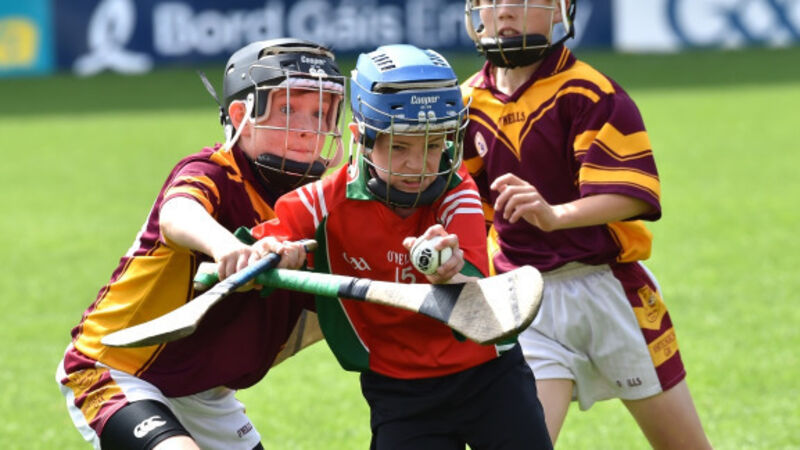Celebrating the pure joy of schools’ matches

That elemental pleasure of swinging a piece of timber at a round ball and making that ball move. And then doing it again and again.
And then as days give to months, and months to years, trying to learn how to master the ball with the stick. The infinite pursuit of the unattainable. The union of the physical act and the pull of competition explains much of the elemental pleasure that sits at the very centre of camogie and of hurling. And it is a pleasure that was on vivid display in Croke Park in the middle of this week at the Cumann na mBunscol finals.












